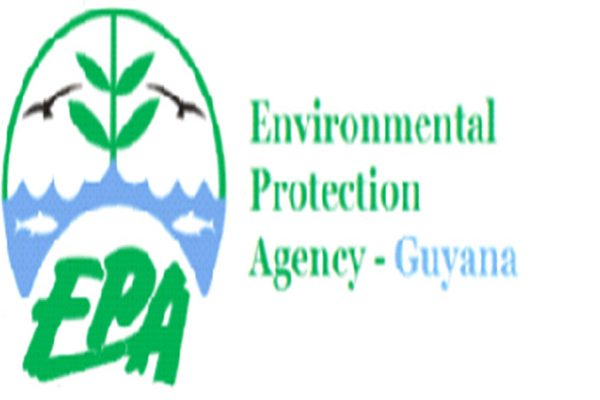
Management and Protection; and the Sustainable use of Guyana Natural Resources.
By Kaieteur News
GEORGETOWN
Petroleumworld 02 07 2022
In November 2021, Vice President, Dr. Bharrat Jagdeo said the People’s Progressive Party/Civic (PPP/C) government is working to get ExxonMobil to acknowledge its commitment to provide Guyana with full coverage insurance.
But when asked on Thursday last for an update on these discussions, the Vice President’s tune carried a different note.
The official suddenly shifted the attention from himself and the government, by extension on the matter to say, it is the Environmental Protection Agency (EPA) that is handling this crucial insurance negotiation with Exxon.
The Vice President said, “This is an ongoing discussion and it is done mainly at the EPA. So that was their position on the table, in trying to get US$2B but they have been negotiating this and at the end of the day we will see…I don’t want to give a ball by ball blow but you know the intention and you will see the final product when it comes out and we are pressing hard for that sort of commitment.”
Even though American oil explorer, ExxonMobil has faced five years of unrelenting criticism for refusing to provide Guyana with full coverage insurance on its Liza Phase One, Liza Phase Two and Payara Projects, the company appears hell-bent on continuing this trend for its fourth development—the $1.8 trillion Yellowtail Project.
Currently, Guyana only has insurance from the subsidiaries of ExxonMobil, Hess Corporation, and China National Offshore Oil Corporation, or CNOOC Group on the Stabroek Block. Given that these companies hardly have any assets or cash, the insurance coverage in the event of an oil spill would be minuscule, to say the least.
As a result of this, local stakeholders have urged the government to not only correct this state of affairs by tying the parent companies to full coverage insurance for the first three sanctioned projects, but they have also demanded better arrangements for Exxon’s Yellowtail Project, which the government is now racing to approve by March.
The continued calls for full coverage insurance have also intensified as more global cases of oil spill disasters come to the fore.
Just recently, Kaieteur News highlighted two key cases in this regard. In Peru, this newspaper reported that a judge barred four executives from the Spanish oil company, Repsol, from leaving the country amid the devastating oil spill, which saw more than 6,000 barrels of crude contaminating the shores of Peru.
Kaieteur News reported that the oil spill occurred on January 15, 2022, at one of the La Pampilla refineries off the coast of Ventanilla in the region of Lima, Peru. It was reported that the oil spill was caused by shock waves from an undersea volcanic eruption near Tonga in the South Pacific Ocean.
At the time of the undersea eruption, Suezmax tanker, Mare Doricum, was unloading a shipment of Brazilian crude oil at one of La Pampilla refinery’s offshore mooring buoys, and as such a quantity of the cargo was released.
Kaieteur News also reported on another environmental disaster that occurred recently when an aging tanker called the Trinity Spirit that was operating as a floating production and storage vessel (FPSO) exploded and caught fire before sinking off the coast of Nigeria. Ten people working aboard the vessel were reported missing and presumed killed.
Shebah Exploration and Production Company Limited (SEPCOL), which was the operator at the Nigerian oil field, reported that the FPSO was serving as the primary production facility for the OML 108 in Nigeria’s offshore Ukpokiti oil field, located near the Niger Delta.
The company indicated that the Trinity Spirit could process up to 22,000 barrels per day as well as inject up to 40,000 barrels with water per day. Its storage capacity was 2 million barrels of oil, although it is not known how much was aboard at the time. The Nigerian oil ministry indicated that the Ukpokiti oil field was not in production in 2020 and 2021. Some reports are indicating that the company was in financial trouble and that the Nigerian authorities revoked the production licence in 2019. It nonetheless exploded and an investigation was launched to determine the true cause. In the meantime, international reports cited that it will lead to an environmental disaster in Nigerian waters.
The country is now potentially facing its second environmental disaster in three months after a vast oil spill from a disused wellhead spewed the equivalent of 20,000 barrels a day into waterways in the town of Nembe for weeks.
In fact, the Nigerian government described the spill as being “like Hiroshima” after it devastated marine life, mangroves and water resources.
Diane Hoskins, from the ocean conservation nonprofit Oceana, said in a statement: “The explosion of Trinity Spirit, an offshore production vessel, is horrifying for the crew on board and tragic for the local environment.
“No offshore oil and gas operator can guarantee this won’t happen. Despite repeated promises that spill disasters are rare, industry proves again and again that where they drill, they spill. This is the reality of the oil and gas industry and it’s time to end drilling for oil in our oceans.”
The explosion of the Trinity Spirit is the fourth major oil disaster this year, following incidents in Peru, Ecuador and Thailand.
In spite of the foregoing, Guyana continues to pussyfoot with securing full coverage insurance from oil companies to protect its people and environmental resources.
______________












